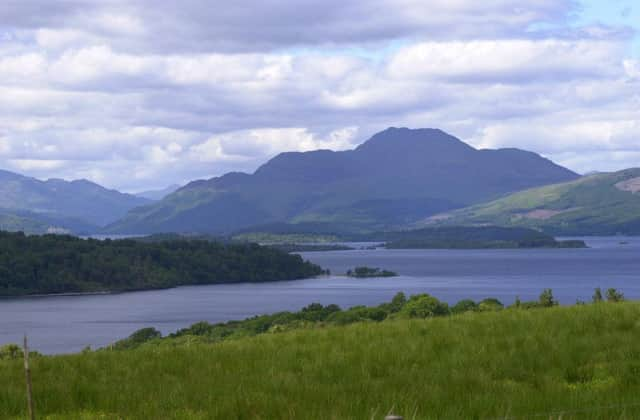All parties can take a stand for our natural heritage


Like many charities and non-governmental organisations, the National Trust for Scotland is presenting a “manifesto” to all candidates in this May’s Scottish Parliamentary elections.
The Trust is firmly apolitical but, in fulfilling our role as an advocate for the nation’s built and natural heritage, we are taking the opportunity to encourage all political parties to consider the part this legacy could play in our collective wellbeing.
Advertisement
Hide AdAdvertisement
Hide AdOne of the main proposals being put forward is the idea that the incoming Scottish Government should introduce a “Passport to Nature”, public sector bodies coming together with the voluntary sector to ensure that, over the lifetime of the next parliament, every eight- to 15 year-old has the chance to visit a national park or national nature reserve (NNR). This is a suggestion borne of the direct experience of managing these places and welcoming over 17,000 pupils on school visits each year.
Our Countryside Rangers introduce these young people, who are overwhelmingly from urban environments, to a world that is often completely unfamiliar to them. Our sister charity, RSPB Scotland, undertook research in 2013 that shows that there is a growing disconnect between our children and nature, and we see the evidence of this every day.
Yet, when children and young people are given the chance to explore some of the world’s finest natural heritage, which happens to exist in our country, we can see their fascination leading to growing awareness, a developing sense of adventure and self-reliance.
This makes it doubly imperative that we as a society give as many children as possible the opportunity to share in these experiences.
There is a depressing cycle that needs to be broken: it begins from the earliest years, when physical and social barriers may prevent access to the natural world. The result is alienation and a perception that nature has no connection to everyday life.
By losing touch, immense damage is being done to our health and psychological wellbeing. We are the first generations to eschew nature entirely and the results of this collective experiment are not encouraging.
At a local level, the National Trust for Scotland has tried to reverse the tide through relatively simple, though expensive, measures like providing free transport to schools to ensure trips to the countryside or coast are possible. In what seems to be a never-ending era of austerity, school transport budgets are all too vulnerable and the generosity of our members and donors has allowed us to make good some of the losses to a very limited extent.
It needs a truly national effort make countryside access possible for all children and young people, and this is why we are calling for the new Scottish Government to commit to a Passport for Leisure.
Advertisement
Hide AdAdvertisement
Hide AdGiven time, the passport would bring through new generations more in tune with the world around them.
We were pleased to see the recent introduction of “improved access to local greenspace” and “increased natural capital” to Scotland’s “national indicators” but more needs to be done – such as an equal right of appeal for communities in the planning system – so that local greenspace and amenities can have a fair defence against the voracious needs of well-funded developers.
We need to give nature its place and recognise that we all have a place in nature.
• Arthur Martin, head of countryside and nature services, the National Trust for Scotland
SEE ALSO